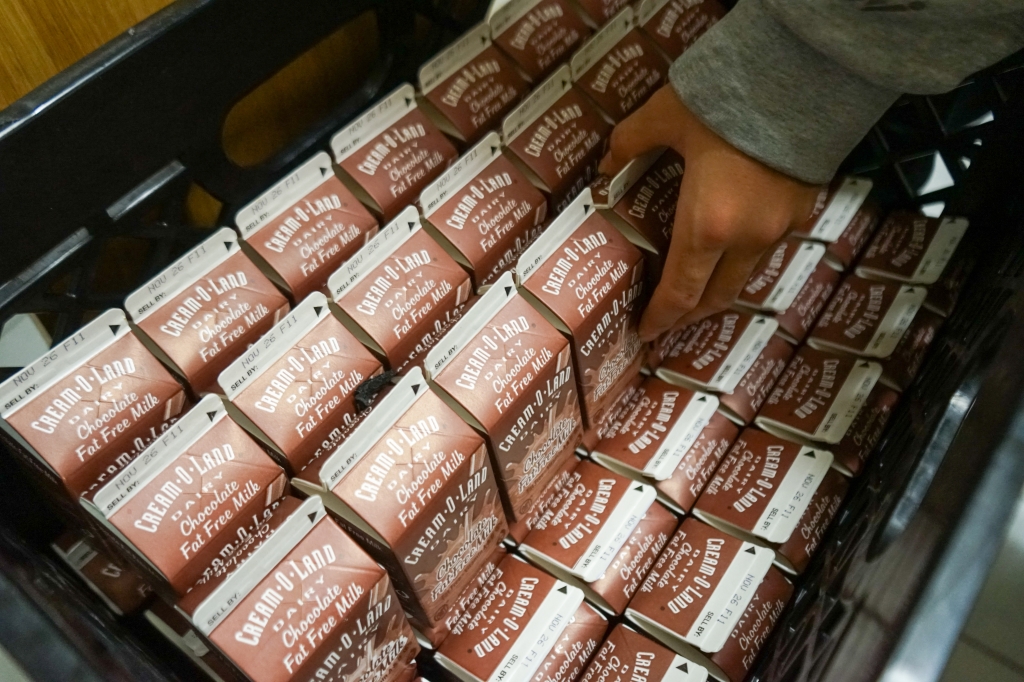USDA weighs ban on chocolate milk in school cafeterias
School lunch could soon get a lot less sweet.
US officials are considering a ban on chocolate milk in elementary and middle school cafeterias due to its high sugar content, according to The Wall Street Journal.
The proposed flavored-milk moratorium — which was considered but abandoned by New York City Mayor Eric Adams — has been adopted by major cities like Washington, DC, and San Francisco and was first floated by the feds earlier this year.
Proponents of the ban say the sugary beverages contribute to childhood obesity, which some 20% of the nation’s kids are afflicted by, according to the Centers for Disease Control and Prevention.
A 2021 study published in the National Library of Medicine found that flavored skim milk was the leading source of added sugar in school meals.
“From a public-health perspective, it makes a lot of sense to try to limit the servings of these flavored milks because they do have quite a lot of added sugar,” Erica Lauren Kenney, a public-health and nutrition professor at the Harvard TH Chan School of Public Health, told the newspaper.

Many districts, parents and dairy industry officials argue that chocolate milk delivers a whopping side of health benefits.
“We want to take a product that most kids like and that has nine essential nutrients in it and say, ‘You can’t drink this, you have to drink plain?’” Katie Wilson, executive director of the Urban School Food Alliance, which represents 18 of the largest school districts in the country, asked.
“What are we trying to prove?”
Federal regulators were also conflicted, saying they were torn between banning flavored milk, or allowing it options with no more than 10 grams of added sugars in each 8-ounce portion to be served.
More than 90% of the school milk processing industry agreed last month to adhere to the new sugar standards.
“Flavored milk is a challenging issue to figure out exactly the best path forward,” said Cindy Long, administrator of United States Department of Agriculture’s Food and Nutrition Service.
“We really do want to encourage children to consume milk and we also recognize the need to reduce added-sugar consumption.”
The director of nutrition services for Littleton Public Schools in Colorado said many students forgo much needed protein if chocolate milk is not available, because they don’t like the taste of non-flavored milk.
“Do we want kids to get the calcium, the protein, the additional nutrients that are part of milk?” Jessica Gould rhetorically asked the paper. “Because when we were only providing white milk [during the COVID-19 pandemic] we did see a significant amount of students didn’t take milk in general.”
The USDA received close to 90,000 comments on the proposal since it was unveiled in February, according to the report.
A decision on flavored milk — which would impact some 30 million students — was expected by next year and would be implemented by the 2025-26 school year, Long told the Journal.
The agency is also considering gradually lowering the salt content in school meals.
Read the full article Here


